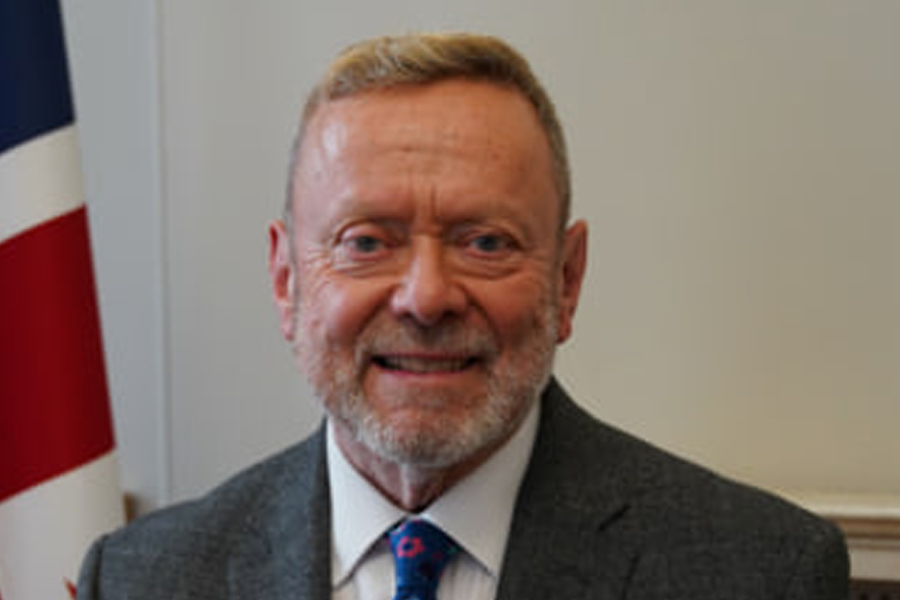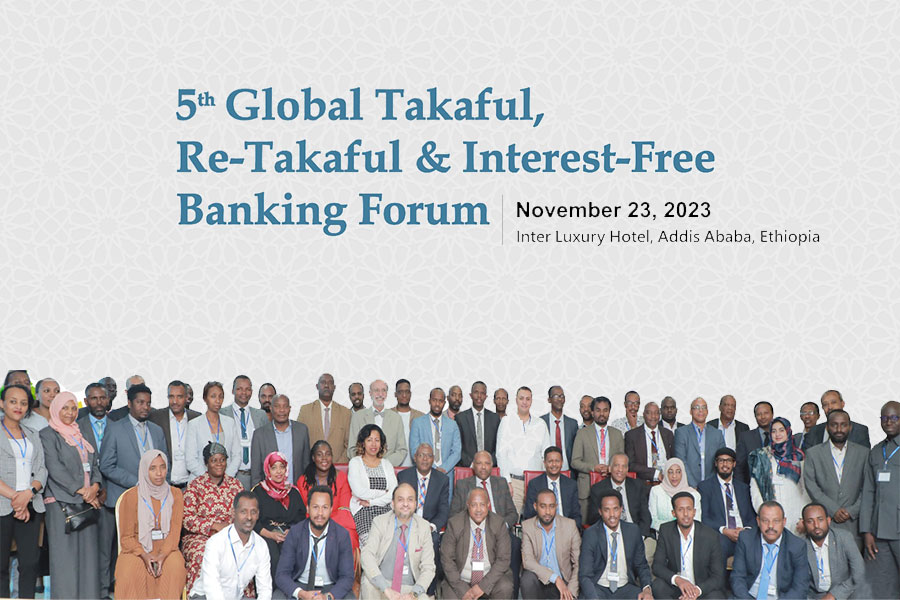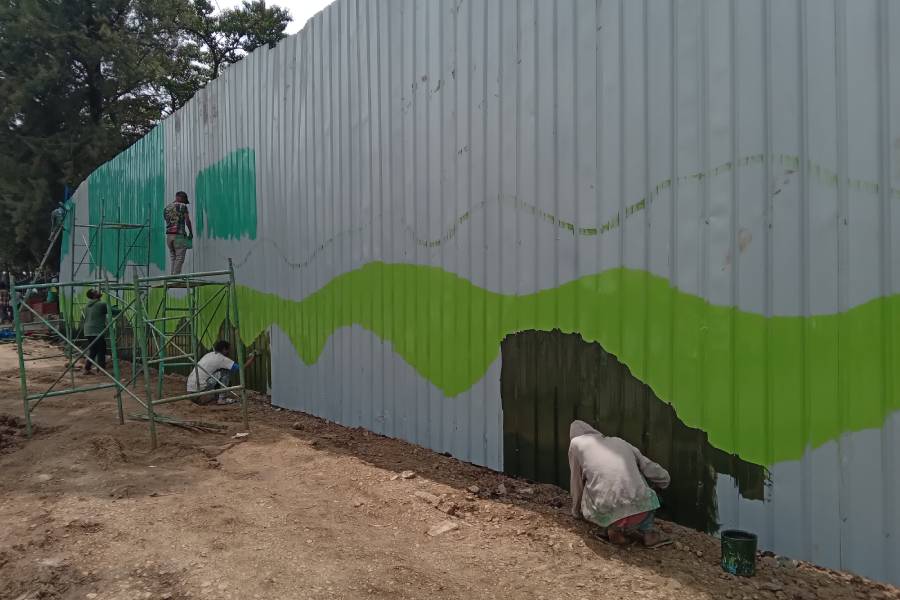
View From Arada | Sep 10,2022
Sep 10 , 2023
By Mahmoud Mohieldin , Bogolo Kenewendo and Reuben Wambui
Climate finance is inefficient, insufficient, and unfair. With debt levels and borrowing costs soaring, climate action must be funded through more equity investments and concessional financing. That means focusing on the needs of African countries, which are disproportionately vulnerable to climate change, despite contributing the least to creating the problem, in creating and implementing green-finance tools.
The sooner leaders of advanced economies and international organizations understand what Africa needs to achieve a just energy transition and provide the required financing and technology transfers, the greater the chance that the world will reach net-zero emissions by 2050. This week, Kenya is hosting the inaugural Africa Climate Summit and Africa Climate Week to increase commitments and pledges to support climate adaptation efforts and scale up renewable energy on the continent. That makes this an opportune time for governments, the private sector, and multilateral lenders to begin removing the systemic barriers to investment and development in African countries.
To meet the Paris Climate Agreement’s emissions targets, Africa will need 2.8 trillion dollars by 2030 – roughly equal to 93pc of the continent’s GDP. But, with the continent’s combined public debt reaching 1.8 trillion dollars in 2022, many African countries lack the fiscal space to mobilise domestic resources. International investors should fill this gap by providing financing and technology transfers that will help build capacity and develop local industry, rather than merely continuing to exploit the continent’s natural resources.
To that end, starting in Kenya this week and leading up to the United Nations Climate Change Conference (COP28) in Dubai in November and December, governments and financiers must begin implementing five critical reforms to ensure that Africa’s funding needs are met.
Lenders must offer more concessional finance to emerging markets and developing economies (EMDEs). The World Bank and regional multilateral development banks (MDBs), supported by the climate-finance contributions of advanced economies, should provide loans to low- and low-middle-income countries at an interest rate of one per cent and with a 10-year grace period and a 20-year repayment term for initiatives that boost climate resilience. Lending mechanisms such as the World Bank’s International Development Association, traditionally available only to low-income countries, should be extended to low-middle-income countries, and adopted by various multilateral institutions.
Governments and development agencies should also establish large and flexible pools of concessional capital earmarked for climate projects. And they should explore new avenues for international taxation to provide grants, rather than loans, when traditional private or public funding falls short.
Multilateral financial institutions can implement credit enhancement and guarantee schemes to incentivize private-sector participation. Such assurances would mitigate project risks and bolster investor confidence, attracting much-needed private capital to Africa.
Creditors, including in the G20, must provide debt relief to low- and middle-income countries. Given that around 60pc of low-income countries are in or at high risk of debt distress, suspending debt payments or, even better, cancelling debts would significantly improve their ability to respond to the damaging effects of global warming. These institutions need to implement Climate Resilient Clauses in loan contracts for poorer countries, which the World Bank announced this year. Moreover, debt-for-nature and debt-for-climate swaps could enable recipient countries to repay their debts by investing in biodiversity protection and climate action.
Building on its recent efforts to provide 100 billion dollars in special drawing rights (SDRs) to climate-vulnerable countries, the International Monetary Fund (IMF) should allocate an additional 100 billion dollars in paid-in capital and redirect SDRs to MDBs, starting with the African Development Bank this month. This would be in line with the Marrakech Declaration, an initiative to reform the global financial architecture which is being developed at the request of African finance ministers.
A multi-partner fund must be established to help mitigate foreign exchange risks for private investors by providing cost-effective currency and country hedges for climate investments in Africa. Such a fund would significantly reduce the perceived risks of investing in EMDEs, even in the face of currency fluctuations.
Lastly, lenders should support the creation of a facility that accelerates existing projects and programs on the continent, especially those that preserve nature and help communities adapt to extreme weather events such as droughts, floods, and heatwaves. Multiple funders and investment instruments already operating in Africa could set up such a facility, avoiding the cumbersome process of establishing a new fund.
Progress on these five reforms has already been made. At the Summit for a New Global Financing Pact in Paris in June, Senegal secured 2.7 billion dollars from developed countries to invest in renewable energy, and Zambia struck a deal to restructure 6.3 billion dollars in debt. Meanwhile, the African Risk Capacity Group, which offers parametric insurance against natural disasters, has provided 720 million dollars in coverage for 72 million people since 2014.
We can substantially increase such assistance by quickly putting money into the Loss and Damage Fund established at last year’s COP27 climate summit in Egypt. Innovative financing measures will help African countries recover from climate disasters, build resilience to future shocks, and complete the transition to cleaner energy – all of which can bring sustainable development gains.
But the continent needs a dramatic increase in funding to reap the full benefits of climate action.
This article first appears in the Project Syndicate (PS).
PUBLISHED ON
Sep 10,2023 [ VOL
24 , NO
1219]

View From Arada | Sep 10,2022

Commentaries | Apr 28,2024

Fortune News | Oct 28,2023

Fortune News | Apr 22,2023

Radar | Oct 12,2024

Sunday with Eden | Apr 15,2023

Agenda | Jul 13,2025

Fortune News | Nov 25,2023

Fortune News | Mar 25,2023

In-Picture | Jul 08,2024

Photo Gallery | 177222 Views | May 06,2019

Photo Gallery | 167430 Views | Apr 26,2019

Photo Gallery | 158057 Views | Oct 06,2021

My Opinion | 136970 Views | Aug 14,2021
Commentaries | Oct 25,2025

Dec 22 , 2024 . By TIZITA SHEWAFERAW
Charged with transforming colossal state-owned enterprises into modern and competitiv...

Aug 18 , 2024 . By AKSAH ITALO
Although predictable Yonas Zerihun's job in the ride-hailing service is not immune to...

Jul 28 , 2024 . By TIZITA SHEWAFERAW
Unhabitual, perhaps too many, Samuel Gebreyohannes, 38, used to occasionally enjoy a couple of beers at breakfast. However, he recently swit...

Jul 13 , 2024 . By AKSAH ITALO
Investors who rely on tractors, trucks, and field vehicles for commuting, transporting commodities, and f...

Oct 25 , 2025
The regulatory machinery is on overdrive. In only two years, no fewer than 35 new pro...

Oct 18 , 2025
The political establishment, notably the ruling party and its top brass, has become p...

Oct 11 , 2025
Ladislas Farago, a roving Associated Press (AP) correspondent, arrived in Ethiopia in...

Oct 4 , 2025
Eyob Tekalegn (PhD) had been in the Governor's chair for only weeks when, on Septembe...

Oct 25 , 2025 . By YITBAREK GETACHEW
Officials of the Addis Abeba's Education Bureau have embarked on an ambitious experim...

Oct 26 , 2025 . By YITBAREK GETACHEW
The federal government is making a landmark shift in its investment incentive regime...

Oct 26 , 2025 . By NAHOM AYELE
The National Bank of Ethiopia (NBE) is preparing to issue a directive that will funda...

Oct 26 , 2025 . By SURAFEL MULUGETA
A community of booksellers shadowing the Ethiopian National Theatre has been jolted b...